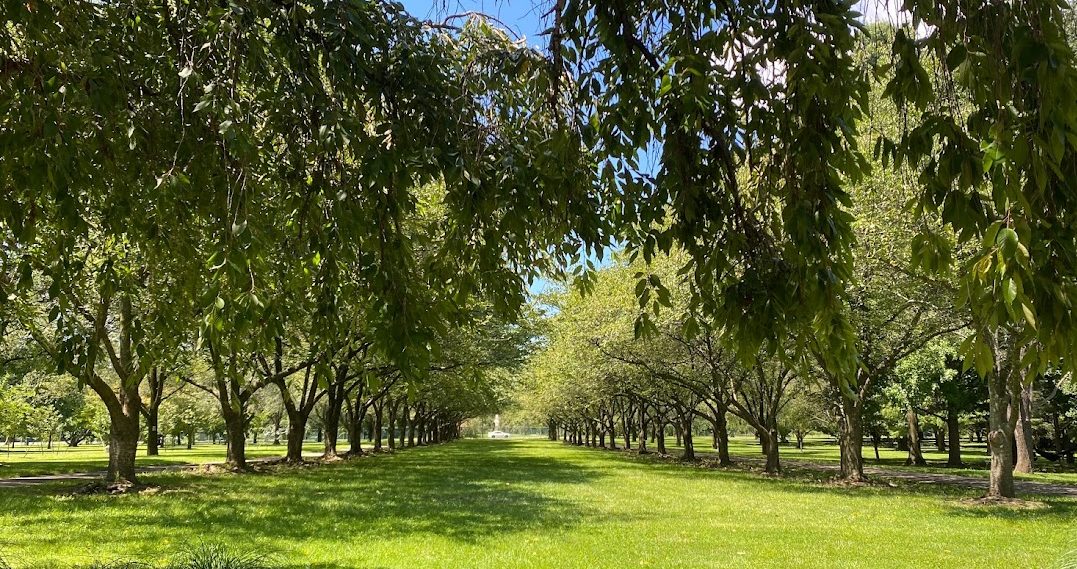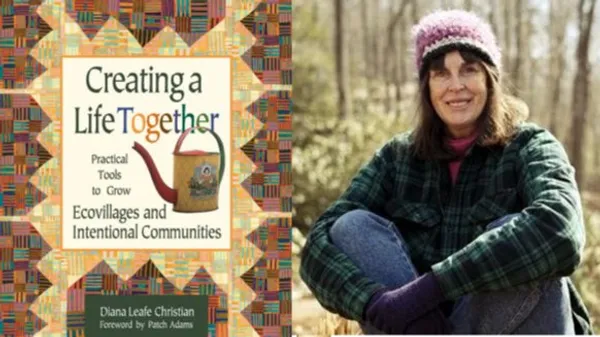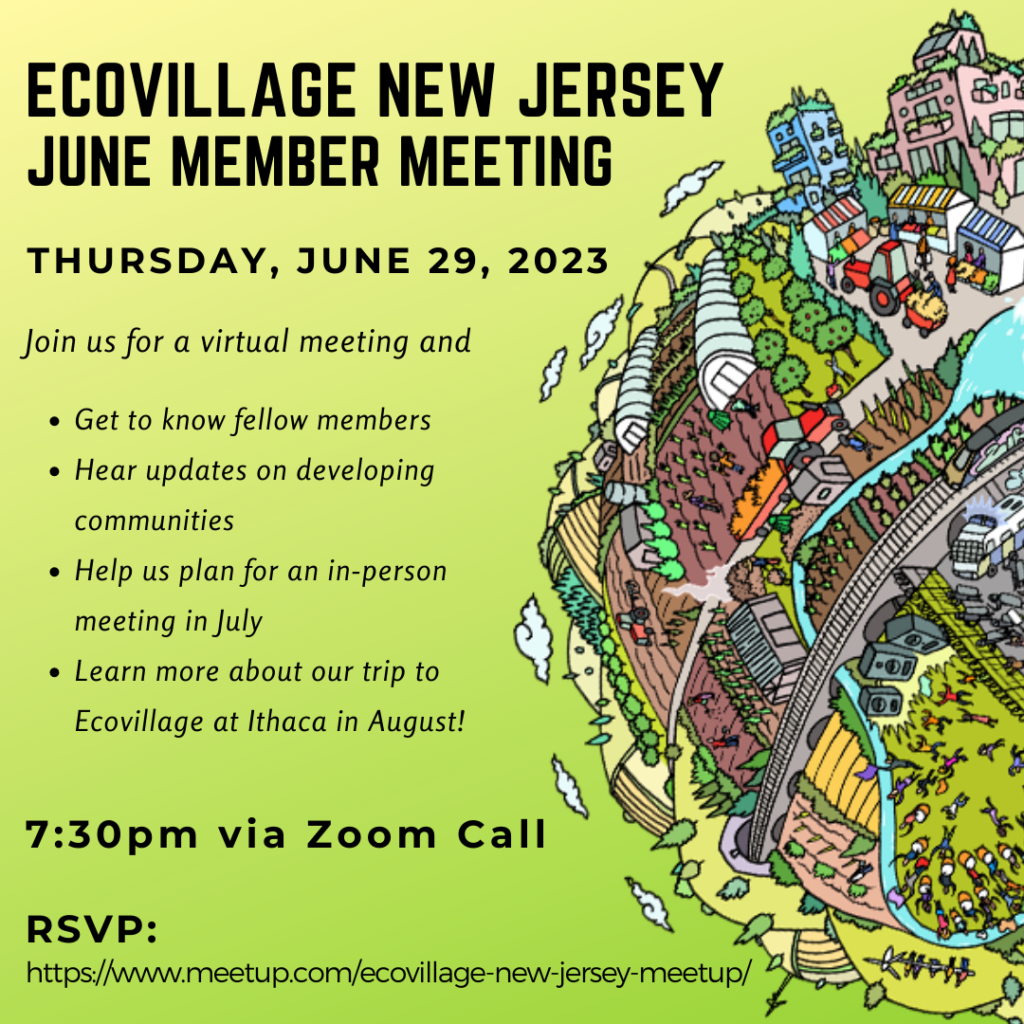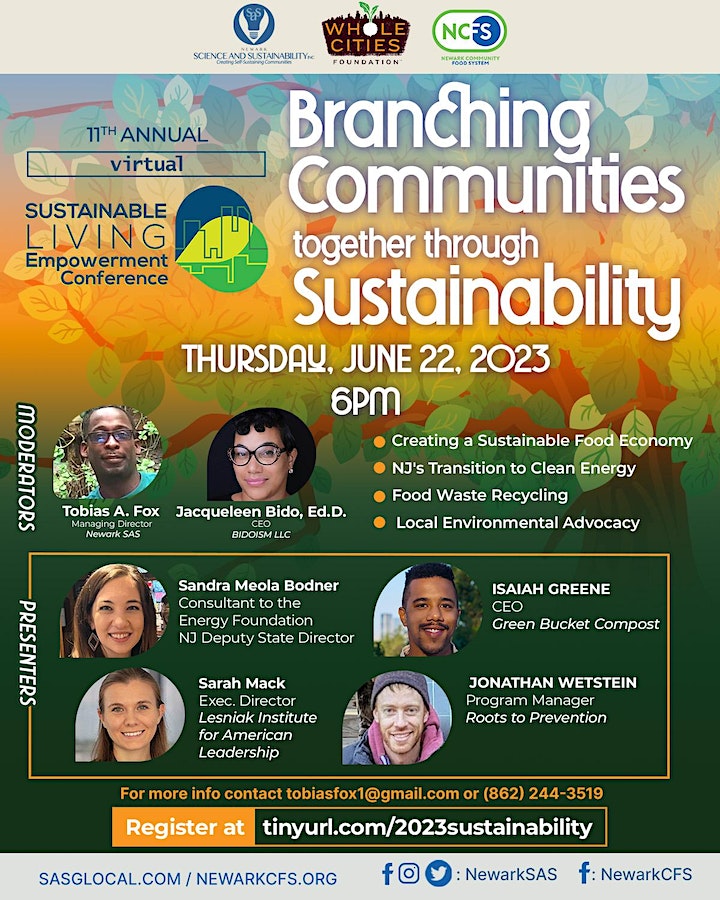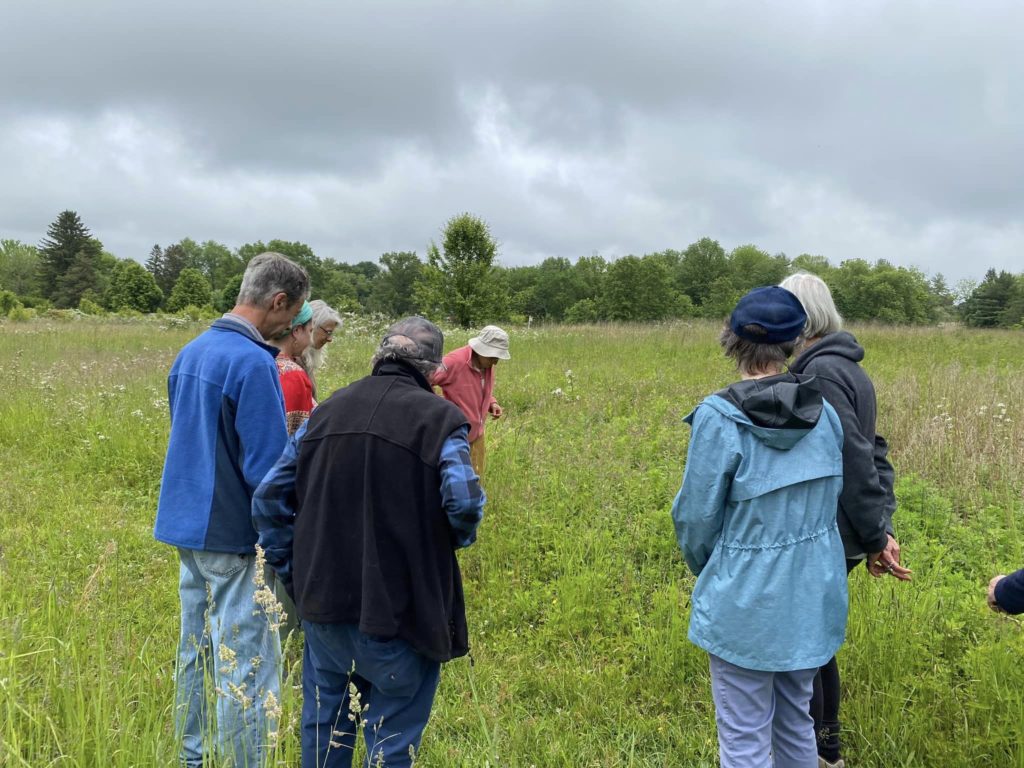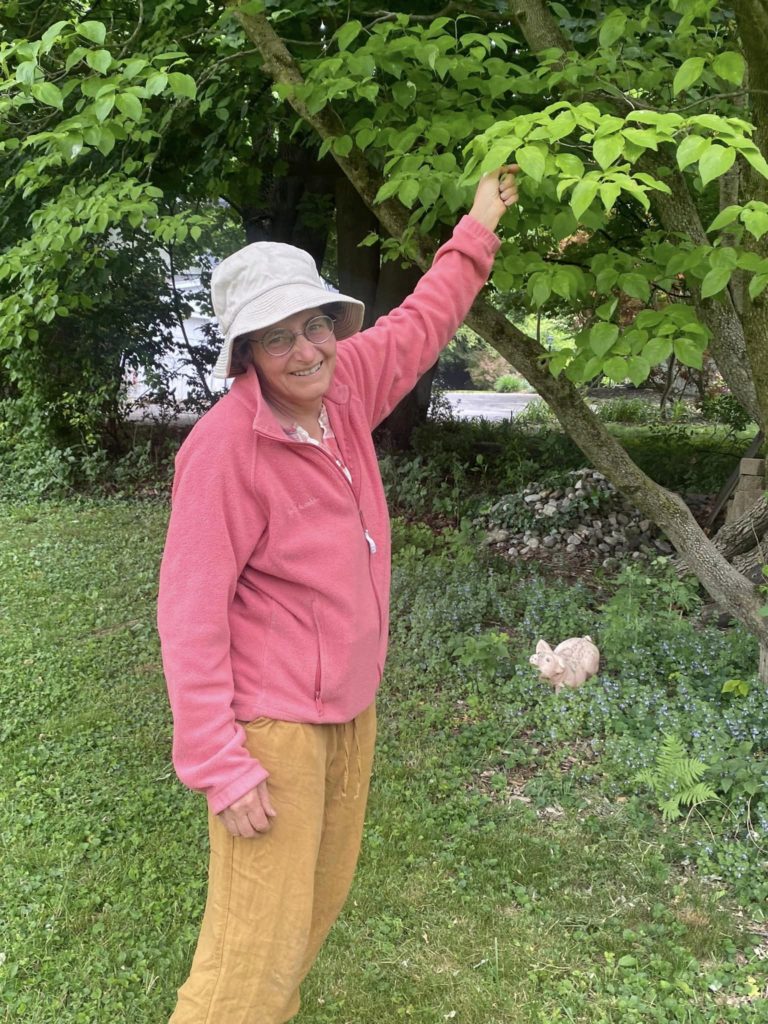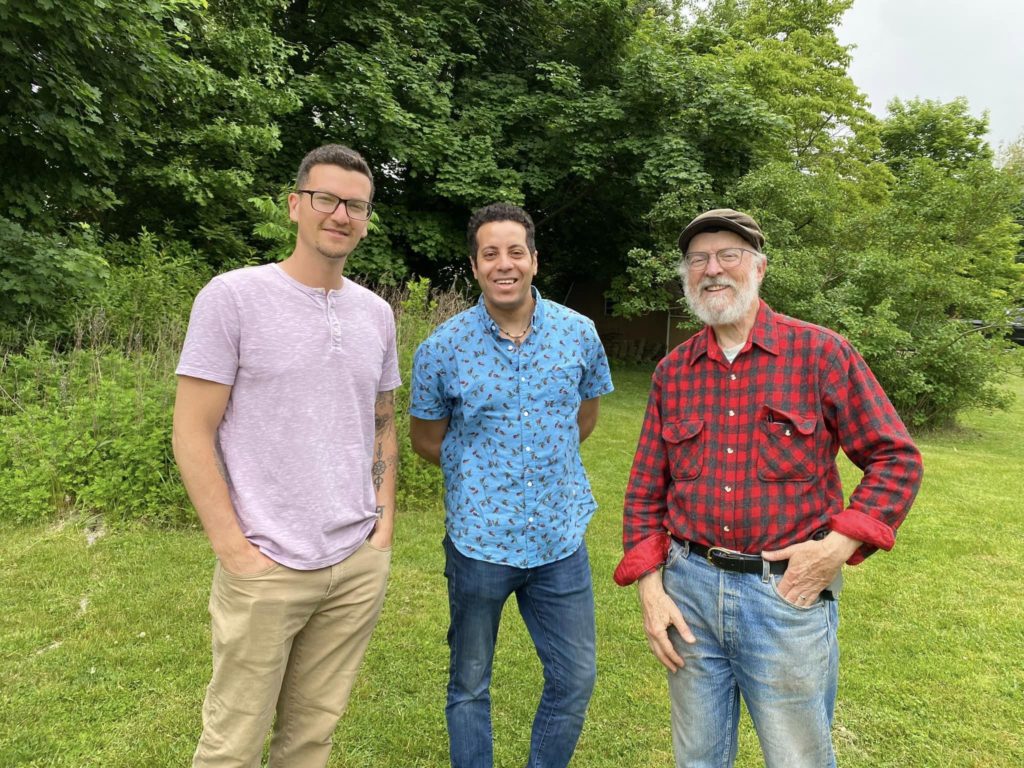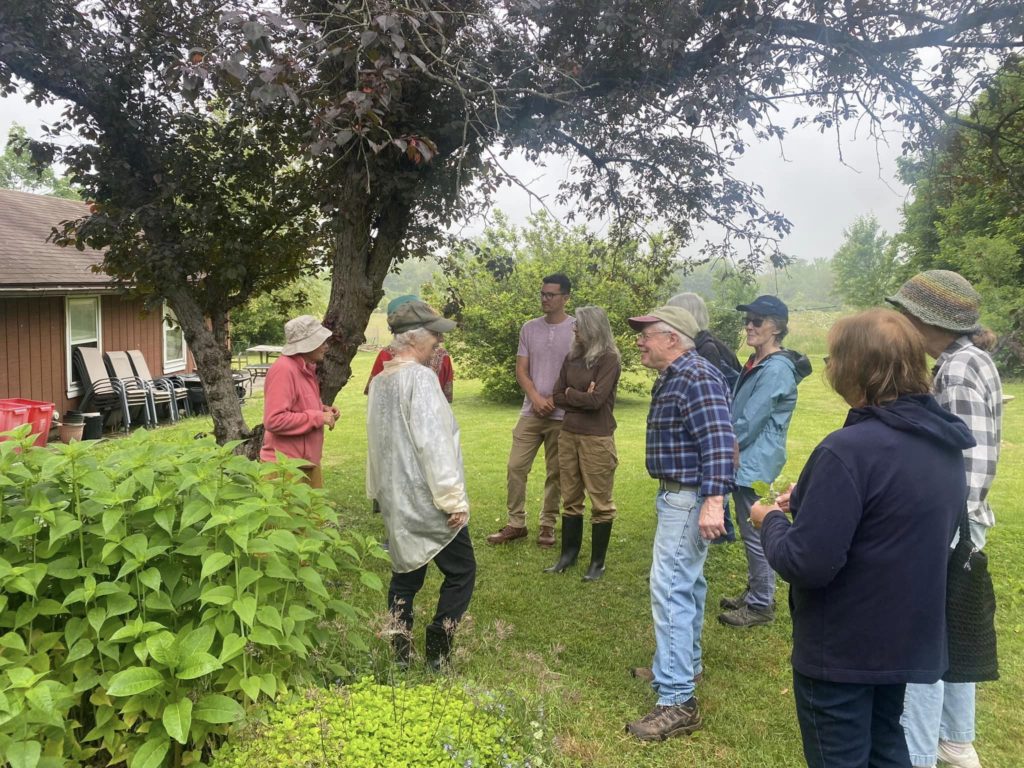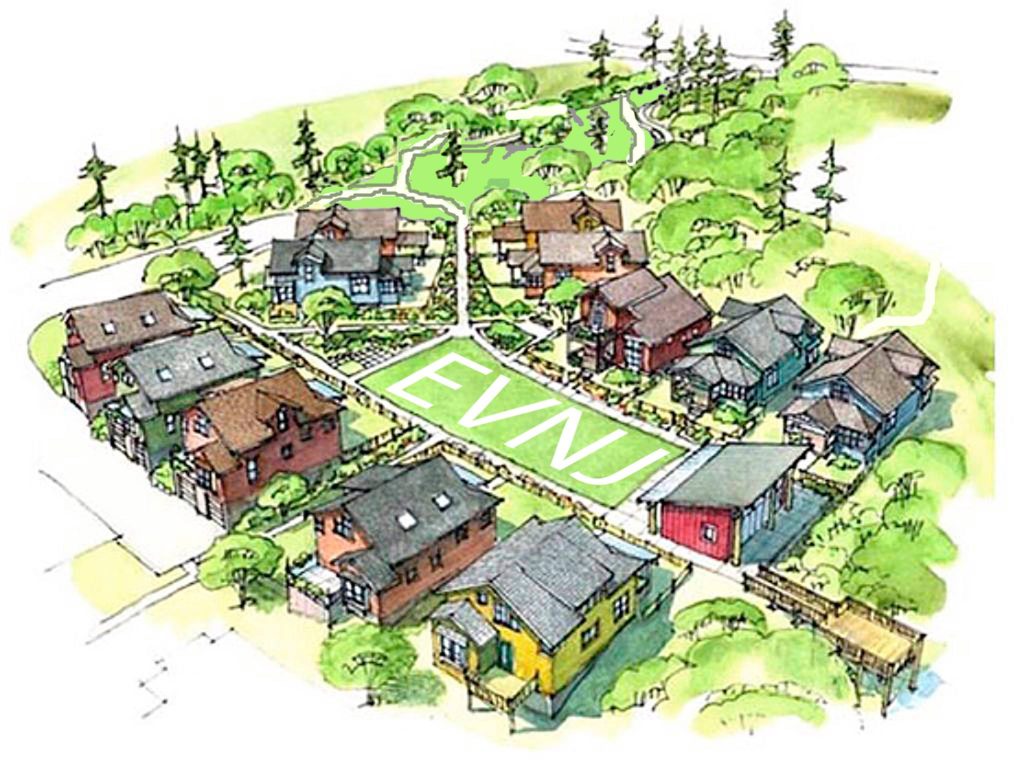Next Wednesday, January 10th at 7:30pm we are hosting a virtual get-to-know-you meeting to ramp up to our book club.
Have you read a good article in Communities Magazine lately? Or watched a great documentary? Join us and share what you’ve been reading and learning about ecovillages and community living.
Our member Will Powers will share his reflections on a recent read from our EVNJ Lending Library: Jonathan Dawson’s 2006 Ecovillages: New Frontiers for Sustainability from the Schumacher Briefings series. This publication explores the concept of the ecovillage and reviews 5 international case studies.
You can view a copy of this book digitally for 1 hour at a time by logging in to the Internet Archive for free: https://archive.org/details/ecovillagesnewfr0000daws/
Copied below is a summary with excerpts prepared by Will:
New Frontiers for Sustainability
We look forward to a lively discussion!
Meanwhile, get ready – our next book will be
Creating a Life Together: Practical Tools to Grow Ecovillages and Intentional Communities by Diana Leafe Christian

The following is an attempt by EVNJ member Will Powers to highlight and share the key points from a recent read of the book: Ecovillages: New Frontiers for Sustainability, by Jonathan Dawson.
The book was provided by EVNJ’s lending library, thanks to member Steve Welzer. The author Jonathan Dawson is President of the Global Ecovillage Network (GEN) and lives at the Findhorn Ecovillage in Scotland. The points that follow are either direct quotes or a paraphrasing of his ideas.
* “The Ecovillage movement was born when the ancient idea of intentional communal living met the burgeoning international green movement of the 1960s and 1970s”. Ecovillages are the newest and most potent kind of intentional community, and their popularity has led many people to imagine them to be the only type of intentional community. Yet, the term ‘Ecovillage’ had not been coined until about 40 years ago. “Today, it proliferates under a dizzying array of guises”. A web search on the word ‘Ecovillage’ takes the browser on a journey through the world of intentional communities in the industrialized North, community development projects in the countries of the Global South, luxury tourist destinations worldwide, large-scale developer-led housing projects, and education centers. “It truly is a term that has entered the zeitgeist, even if, in the process, it has made sacrifices in terms of clarity of definition”.
> The rise of the term ‘Ecovillage’ dates back to the 1980s, a time when community integrity was being steamrolled by economic policies favoring mass production and distribution, and the free flow of capital across the globe, which corresponded with increases in the rates of crime, depression, drug abuse and suicide—sure indicators of the growing alienation experienced by many. “By the late 1980s, the fall in quality of life was tangible”. Prior to, “The Back to the Land and hippie movements of the 1960s and 1970s represented a rejection by youth of mainstream, materialist values, a yearning for reconnection and the launch of myriad experiments in the re-creation of community in the West. The cohousing movement, launched in Denmark and spreading rapidly internationally, represented a less radical but no less important attempt to create human-scale settlements that tread more lightly on the Earth while offering to their residents a real sense of community”.
We live in a time of severe breakdown of the community fabric within countries of the global North, and of unprecedented threats to ecosystems globally. Globalization carries in its wake a range of costs that are unsustainable, and at the root of numerous ecological crises. “Climate change, the most serious of these, is directly linked to the large-scale, centralized industrial processes favored by economic globalization and to the emergence of settlement patterns and social structures that facilitate, even require, high levels of mobility”. The movement to create ecovillages is perhaps the most comprehensive antidote to dependence on the global economy. Around the world, people are building communities that attempt to get away from the waste, pollution, competition and violence of contemporary life. The primary gift of ecovillages to the wider sustainability family has been the impulse to move beyond protest and to create models of more sane, just, and sustainable ways of living.
Continue reading →

